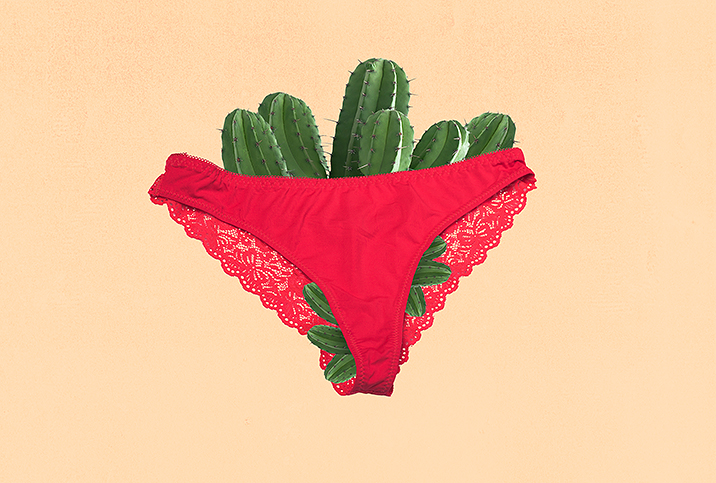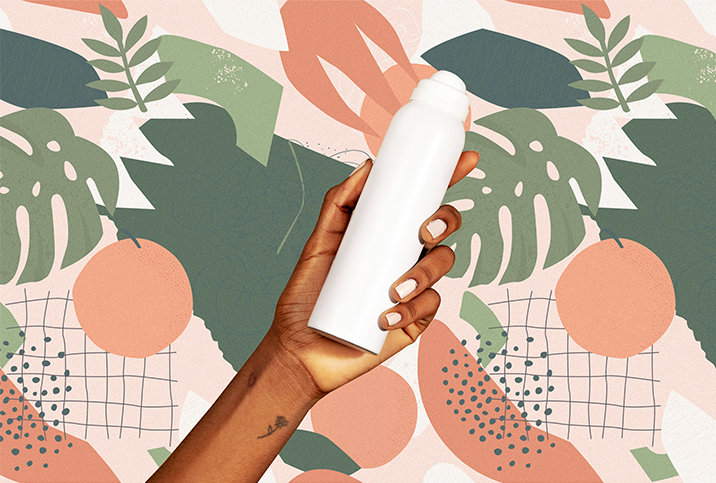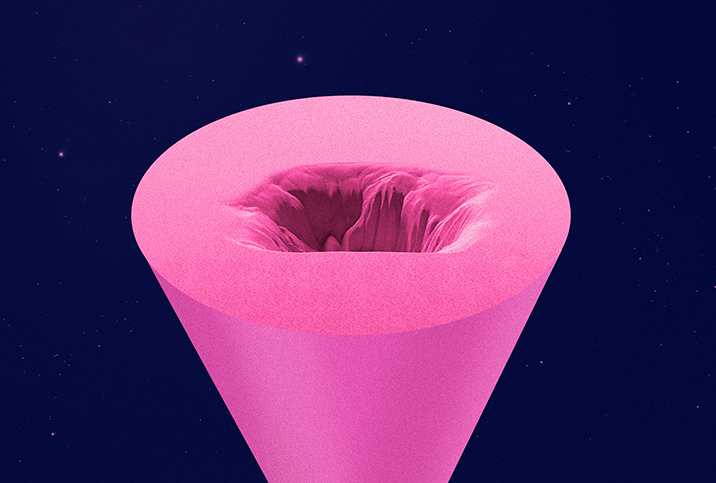Naomi Watts Recreates Her Famed '80s Tampon Ad From a New Standpoint

At the young age of 15, Naomi Watts posed for a Johnson & Johnson tampon advertisement.
In the ad, the teen smiles eagerly at the camera beneath the caption, "When can I start using tampons?"
Almost 40 years later, the now 54-year-old actress has revisited the menstruation-focused commercial and reimagined it as one for menopause. In the 2023 revival, the actress smiles at the camera beneath the caption, "When can I start using lube?" She posted the two photos side by side on Instagram on Jan. 31.
"Why is it that we can talk about periods and puberty with ease, but when it comes to menopause, and yes, drrrryness…we all get a little skittish….🌵🐫," Watts wrote in the caption. "I created this post in an attempt to capture a woman's hormonal bookends.
"I shot the Johnson & Johnson tampon ad when I was 15…face forward…confident…curious…'when can I start using tampons?'" Watts continued. "The other [photo] is a take on what it could look like if we tackled midlife hormonal challenges with the same kind of boldness.
"When it comes to the 'adult version' of hormonal changes, we're thrust into the shadows of secrecy and shame…with a total lack of information, plus misinformation!" she wrote. "Who knew we'd have to sneak a pump of the good stuff before some hanky panky?"
About vaginal dryness
Vaginal dryness is a common symptom of menopause, according to Monte Swarup, M.D., an OB-GYN in Arizona and the founder of HPD Rx.
"Some women experience vaginal dryness during menopause as the body makes less of the hormone estrogen," Swarup said. "Estrogen helps to provide thickness and elasticity to the vagina. [In addition,] vaginal atrophy can occur during menopause, which includes drying, thinning and inflammation of the walls of the vagina."
Menopause isn't the only reason women may experience dryness, Swarup said. There are a host of causes, hormonal and otherwise.
"Other potential causes of vaginal dryness include estrogen levels falling after childbirth, taking antiestrogen drugs or cancer treatment," he said. "Nonhormonal factors include certain medications, antidepressants and autoimmune diseases."
Treating vaginal dryness
Regardless of the source, vaginal dryness can cause painful sex.
"The vaginal tissues become irritated from penetration when there is dryness," Swarup explained.
Watts and Swarup agree on the solution: lubricant, and lots of it. Watts is an advocate for lube regardless of vaginal dryness. In her Instagram post, Watts quoted Jen Gunter, M.D., a well-known OB-GYN: "A lubricant can be a great addition for sex. Some people may need it because they have dryness or other symptoms of menopause, but many people, whether in menopause or not, simply like lube."
"Unfortunately, there is a lot of stigma about lube," the Gunter quote read. "Some people are even made to feel as if there is something wrong with them for liking and/or needing lube. It seems you're either too wet or too dry for the patriarchy. To that I say, bollocks. And, lube for all my friends, should they so desire."
Swarup said hormonal treatments–including creams, tablets, rings, pills or pellets—can also help with menopausal dryness.
Watts capped off her Instagram post with a declaration: "More than 1 billion people worldwide will be menopausal by 2025…That's a whole lot of dry."
If you are among them, you're in good company. Talk to your doctor and other women to learn more about what you can expect from menopause.


















